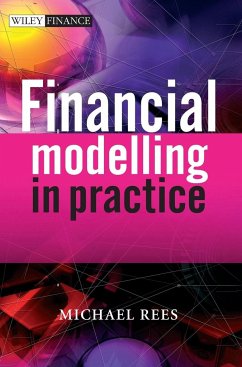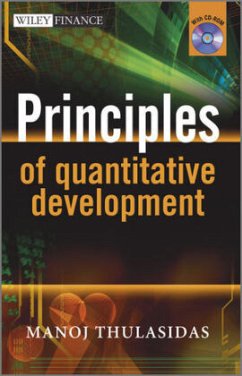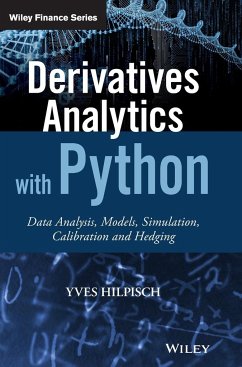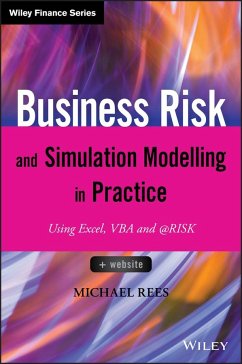
Principles of Financial Modelling
Model Design and Best Practices Using Excel and VBA
Versandkostenfrei!
Versandfertig in über 4 Wochen
95,99 €
inkl. MwSt.
Weitere Ausgaben:

PAYBACK Punkte
48 °P sammeln!
The comprehensive, broadly-applicable, real-world guide to financial modellingPrinciples of Financial Modelling - Model Design and Best Practices Using Excel and VBAcovers the full spectrum of financial modelling tools and techniques in order to provide practical skills that are grounded in real-world applications. Based on rigorously-tested materials created for consulting projects and for training courses, this book demonstrates how to plan, design and build financial models that are flexible, robust, transparent, and highly applicable to a wide range of planning, forecasting and decision-su...
The comprehensive, broadly-applicable, real-world guide to financial modelling
Principles of Financial Modelling - Model Design and Best Practices Using Excel and VBAcovers the full spectrum of financial modelling tools and techniques in order to provide practical skills that are grounded in real-world applications. Based on rigorously-tested materials created for consulting projects and for training courses, this book demonstrates how to plan, design and build financial models that are flexible, robust, transparent, and highly applicable to a wide range of planning, forecasting and decision-support contexts. This book integrates theory and practice to provide a high-value resource for anyone wanting to gain a practical understanding of this complex and nuanced topic. Highlights of its content include extensive coverage of:
_ Model design and best practices, including the optimisation of data structures and layout, maximising transparency, balancing complexity with flexibility, dealing with circularity, model audit and error-checking
_ Sensitivity and scenario analysis, simulation, and optimisation
_ Data manipulation and analysis
_ The use and choice of Excel functions and functionality, including advanced functions and those from all categories, as well as of VBA and its key areas of application within financial modelling
The companion website provides approximately 235 Excel files (screen-clips of most of which are shown in the text), which demonstrate key principles in modelling, as well as providing many examples of the use of Excel functions and VBA macros. These facilitate learning and have a strong emphasis on practical solutions and direct real-world application.
For practical instruction, robust technique and clear presentation, Principles of Financial Modelling is the premier guide to real-world financial modelling from the ground up. It provides clear instruction applicable across sectors, settings and countries, and is presented in a well-structured and highly-developed format that is accessible to people with different backgrounds.
Principles of Financial Modelling - Model Design and Best Practices Using Excel and VBAcovers the full spectrum of financial modelling tools and techniques in order to provide practical skills that are grounded in real-world applications. Based on rigorously-tested materials created for consulting projects and for training courses, this book demonstrates how to plan, design and build financial models that are flexible, robust, transparent, and highly applicable to a wide range of planning, forecasting and decision-support contexts. This book integrates theory and practice to provide a high-value resource for anyone wanting to gain a practical understanding of this complex and nuanced topic. Highlights of its content include extensive coverage of:
_ Model design and best practices, including the optimisation of data structures and layout, maximising transparency, balancing complexity with flexibility, dealing with circularity, model audit and error-checking
_ Sensitivity and scenario analysis, simulation, and optimisation
_ Data manipulation and analysis
_ The use and choice of Excel functions and functionality, including advanced functions and those from all categories, as well as of VBA and its key areas of application within financial modelling
The companion website provides approximately 235 Excel files (screen-clips of most of which are shown in the text), which demonstrate key principles in modelling, as well as providing many examples of the use of Excel functions and VBA macros. These facilitate learning and have a strong emphasis on practical solutions and direct real-world application.
For practical instruction, robust technique and clear presentation, Principles of Financial Modelling is the premier guide to real-world financial modelling from the ground up. It provides clear instruction applicable across sectors, settings and countries, and is presented in a well-structured and highly-developed format that is accessible to people with different backgrounds.













